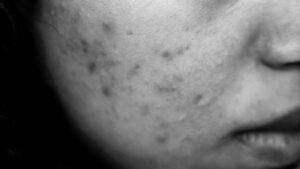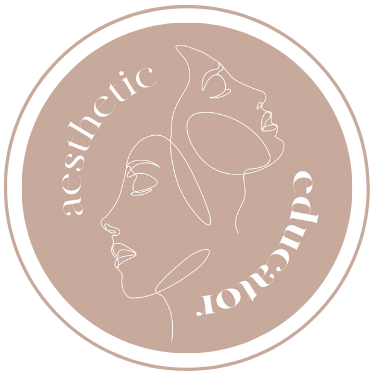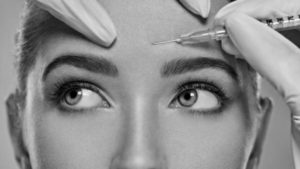Gone are the days of not knowing the main ingredients in your skincare… But just because we know what they’re called, doesn’t mean we know what they are and what they do. Household skincare brands like Glossier, The Ordinary, and SkinCeuticals are leading the trend in niacinamide skincare products. What exactly is niacinamide? What are the benefits? Keep reading to find out!
This post is all about the benefits and uses of niacinamide as a skincare ingredient.
What is Niacinamide?
Niacinamide is a form of vitamin B3. It is commonly found in many foods including greens and grains. Niacinamide is also found in vitamin B-complex supplements, and can help prevent vitamin B3 deficiency.
Benefits of Niacinamide in Skincare
Skin Firming
Niacinamide is known to increase Keratin, a protein responsible for the structure of your hair, nails, and the surface layer of skin. ~ Basically it helps maintain elasticity, and smooths out wrinkles ~
Helps Your Skin Retain Moisture
Niacinamide increases the production of ceramides, a lipid (fat) naturally found in the uppermost layer of skin. Ceramides are a lipid barrier in your skin to help keep moisture in and impurities out.
Minimizes the Appearance of Pores
Niacinamide has been clinically proven to reduce the size of pores. As a result, you will see a smoother appearance in your skin.
Protects Against Environmental Damage
Niacinamide helps to protect your skin against oxidative stresses such as pollution, toxins, and sunlight by strengthening your skin barrier.
Improves Uneven Skin Tone
Research has found that at a 5% concentration, niacinamide can be used to treat hyperpigmentation (lighten dark spots).
Acne-Prone Skin
Niacinamide can be very helpful in treating severe acne – especially inflammatory forms (papules and pustules). Research shows high effectiveness in redness reduction and improved skin texture at concentration starting at 2%.
Using Niacinamide Products?
Niacinamide is compatible with any of the products in your skincare routine, including those that contain retinol, peptides, hyaluronic acid, AHAs, BHA, and vitamin C.
Niacinamide is well-tolerated by all skin types including sensitive skin. If you notice redness or irritation from the product, decrease the frequency of use.
Niacinamide for Skin Conditions
Eczema: there’s insufficient evidence to support the use of niacinamide to treat eczema but early research suggests the application of a topical cream decreases water loss to improve hydration and reduces redness and scaling.
Rosacea & Melasma: (Rosacea: redness on the face, Melasma: dark patches on the face) taking an oral tablet containing niacinamide has given some indication to be effective to improve skin appearance. Research is ongoing.
This post was all about the benefits and uses of niacinamide as a skincare ingredient.
References
1 Gehring W. (2004). Nicotinic acid/niacinamide and the skin. Journal of cosmetic dermatology, 3(2), 88–93. https://doi.org/10.1111/j.1473-2130.2004.00115.x
2 Coderch, L., López, O., de la Maza, A., & Parra, J. L. (2003). Ceramides and skin function. American journal of clinical dermatology, 4(2), 107–129. https://doi.org/10.2165/00128071-200304020-00004
3 Wohlrab, J., & Kreft, D. (2014). Niacinamide – mechanisms of action and its topical use in dermatology. Skin pharmacology and physiology, 27(6), 311–315. https://doi.org/10.1159/000359974
4 Ganceviciene, R., Liakou, A.I., Theodoridis, A., Makrantonaki, E. & Zouboulis, C.C. (2012) Skin anti-aging strategies, Dermato-Endocrinology, 4:3, 308-319, https://doi.org/10.4161/derm.22804








